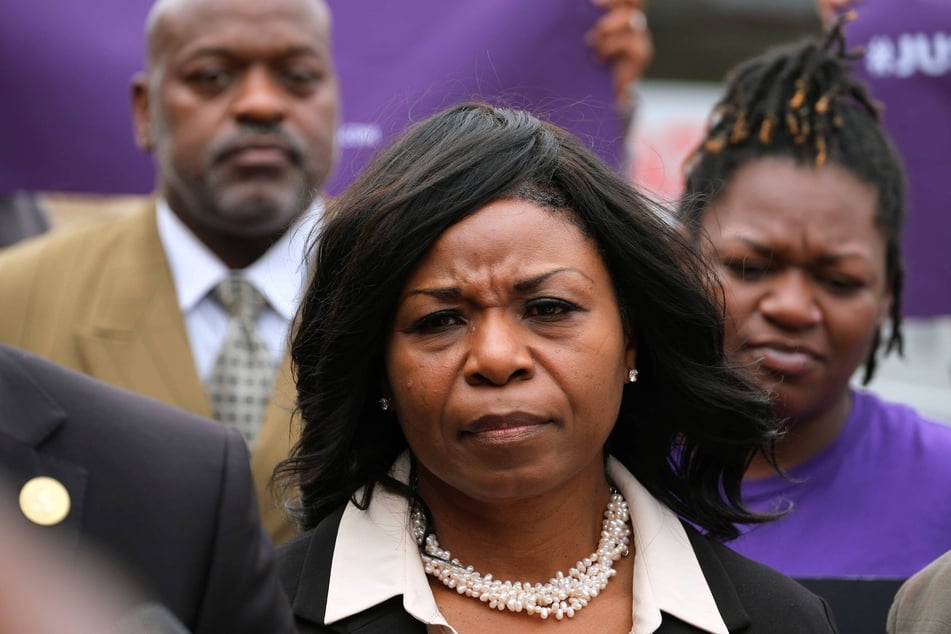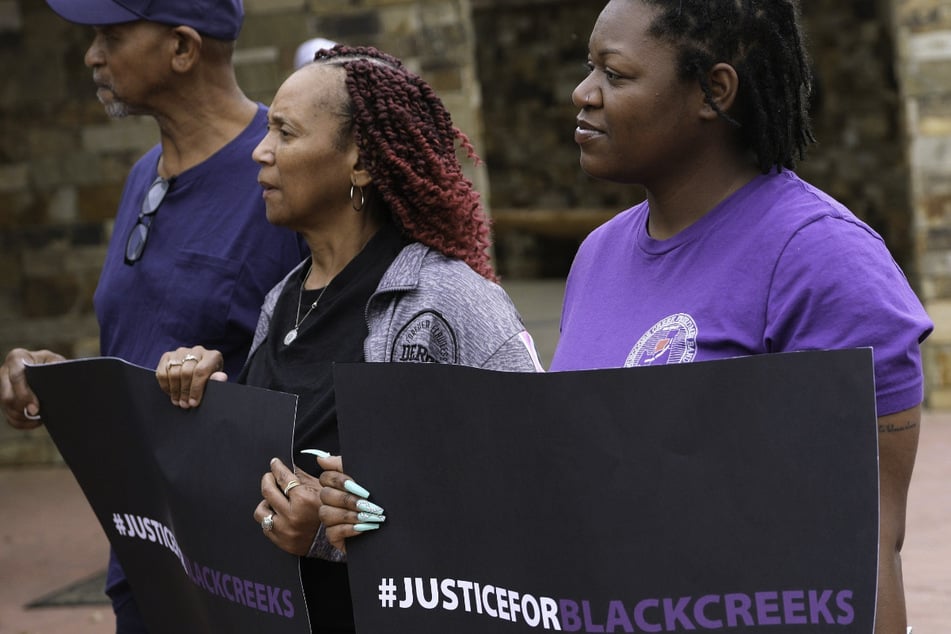Muscogee Nation Supreme Court says Black Creeks are entitled to full citizenship in landmark ruling
Okmulgee, Oklahoma - The Muscogee Nation Supreme Court on Wednesday issued a landmark ruling that Black Creeks are to be granted full citizenship.

"The court finds that there have been no actions taken by the United States Congress to abrogate the Treaty of 1866 and that this treaty stands as the supreme law of the land under both federal and Mvskoke law," the Muscogee Nation Supreme Court wrote in a 25-page ruling, signed by five justices.
"Further, the Treaty of 1866 requires that Creek Freedmen, and their descendants shall be granted 'all the rights and privileges of native citizens(.)' As such, it is contrary to law for the Appellant Board to deny any citizenship to any lineal descendant of the Creek Freedmen Dawes Roll."
Muscogee Creek Freedmen were people of African descent who were either enslaved by members of the Muscogee Creek Nation, lived among the Creeks as free Blacks, or were listed on the Dawes Rolls as interracial Creeks.
The Creek Treaty of 1866 – agreed between the Creek Nation and the US government – guaranteed that Freedmen and their descendants "shall have and enjoy all the rights of native citizens."
But those citizenship rights – and all the accompanying benefits – were suddenly stripped from Black people when the Muscogee Creek Nation adopted a new constitution in 1979 restricting citizenship to those listed as "Muscogee (Creek) Indians by blood" on the Dawes Rolls.
Plaintiffs Rhonda Grayson and Jeff Kennedy, together with their legal representatives, had urged the Muscogee Nation Supreme Court to take a stand against the selective enforcement of treaty obligations and denial of basic rights to descendants of Freedmen by upholding their full citizenship.
Muscogee Creek Freedmen citizenship ruling hailed by advocates

Muscogee Nation District Judge Denette Mouser in September 2023 ruled in favor of Grayson and Kennedy, who had sued the tribe's citizenship board for rejecting their belonging. Muscogee authorities quickly sought to appeal the decision and obtained a stay in the ruling.
The Supreme Court heard oral arguments in the case in June, before ultimately finding "any reference to 'by blood' citizenship in the 1979 Muscogee (Creek) Nation Constitution to be UNLAWFUL and VOID AB INITIO."
The court ordered the citizenship board to apply the Treaty of 1866 to Grayson and Kennedy's applications, as well as to any future applicants who can trace an ancestor to either the Creek By Blood Dawes Roll or the Creek Freedmen Dawes Roll.
After the Supreme Court decision, Muscogee Principal Chief David Hill said in a statement shared by the Associated Press, "We are currently reviewing the order to understand its basis as well as its implications for our processes. It may be necessary to ask for a reconsideration of this order to receive clarity so that we can ensure that we move forward in a legal, constitutional manner."
Attorney Damario Solomon-Simmons, lead counsel for the plaintiffs and a descendant of Creek Freedmen, hailed the ruling: "As Creek Freedmen, we've always carried the truth of who we are. Today, that truth was recognized. This decision affirms our place in the Nation – not as outsiders, but as citizens."
"We're ready to walk forward together, guided by our elders, our communities, and our shared hope for what comes next," Solomon-Simmons added.
Cover photo: IMAGO / Imagn Images

